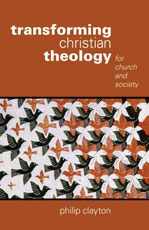"With a grant from the Ford Foundation to 'rekindle theological imagination,' Marjorie Suchocki and I assembled a group of thirty leading theologians to talk about the problems and to look for ways professional theologians might do our work better so that it will have transformative influence on church and society. Two months later we invited thirty denominational leaders and leaders from the National Council of Churches to do the same. This book is an attempt to share with you the first results of what we are learning. We want to break the monopoly academic theologians have had on theology and to return serious Christian reflection to all who are drawn to walk the Way of Jesus. To change things, we have to understand why so many people have lost the ability to give powerful, vibrant accounts of what it means to be 'Christian' in today's world and what it is they actually believe.
"Many people are doing great stuff in congregations and in social ministries, and we should celebrate their work. But our accounts of what we're doing, and why we do it, often wouldn't earn a 'pass' from my junior high Sunday school teacher. (Okay, she was pretty tough.) Christian action is alive and well in mainline churches, but Christian self-descriptions are in crisis. We have trouble talking about what is uniquely Christian about our lifestyles and ministries, and our inability is crippling those ministries. Laryngitis has attacked our vocal cords. This book is a call to give the church back its tongue, to help everyday Christians find their voices again.
"Imagine what will happen when pew-sitting Christians and those who have gradually drifted away from the institutional church — together with pastors, denominational leaders, and directors of social justice ministries — begin to share their personal faith stories and talk openly and passionately about their faith journeys. Imagine a church where every member is thinking deeply about the core Christian questions in light of our contemporary world. Imagine congregations where everyone can address the hot-button issues of our day out of the deepest resources of the Christian tradition — perhaps haltingly, perhaps with some radically new types of answers, but still with humility and deep reflection. That's the goal of the Transforming Theology movement, of which this book is one expression.
"Perhaps you're worried that if Christians start to talk about what they really believe, they'll begin splintering the church, and all hell will break loose (figuratively speaking). So I'm going to work equally hard in the coming pages to describe a way for folks to talk systematically about what they believe — that is, to begin doing theology — that is not dogmatic, divisive, or relativistic. I'll list the reasons why I think our culture is now undergoing a major paradigm shift that is opening up new ways of believing and talking. And I'll say why I think this is really good news for individual disciples, for the church, and for new modes of transformative Christian activism in society and in the world at large."
